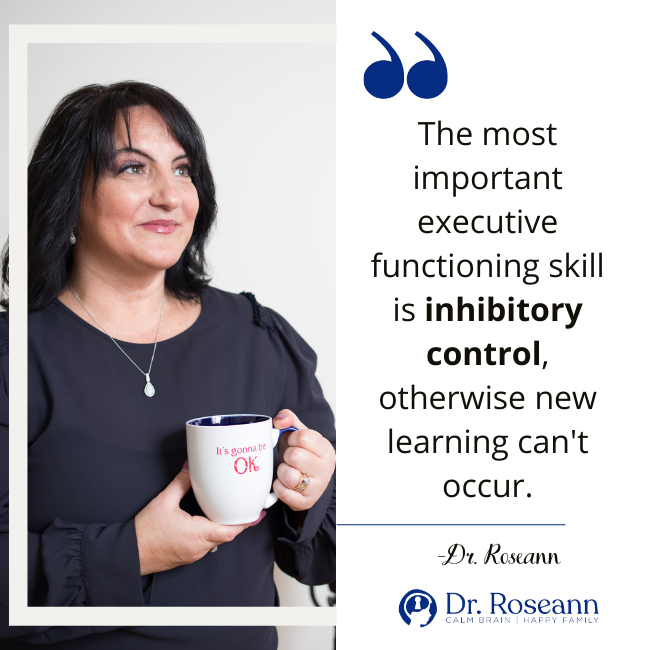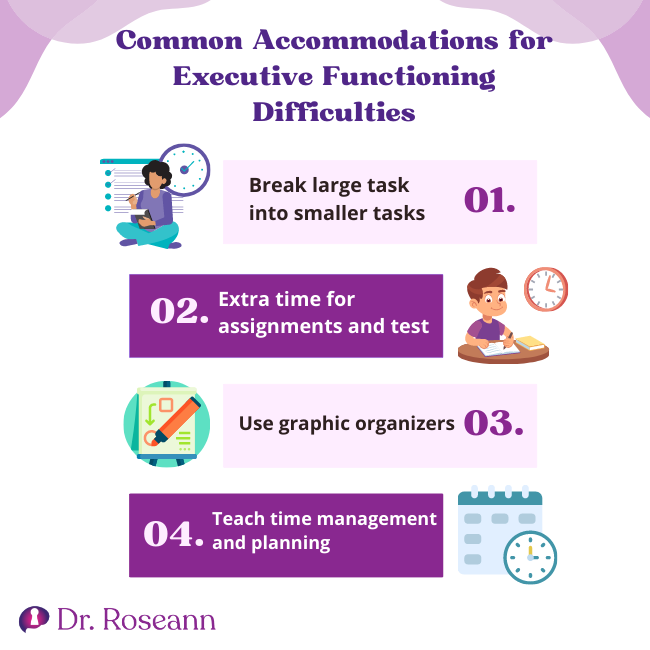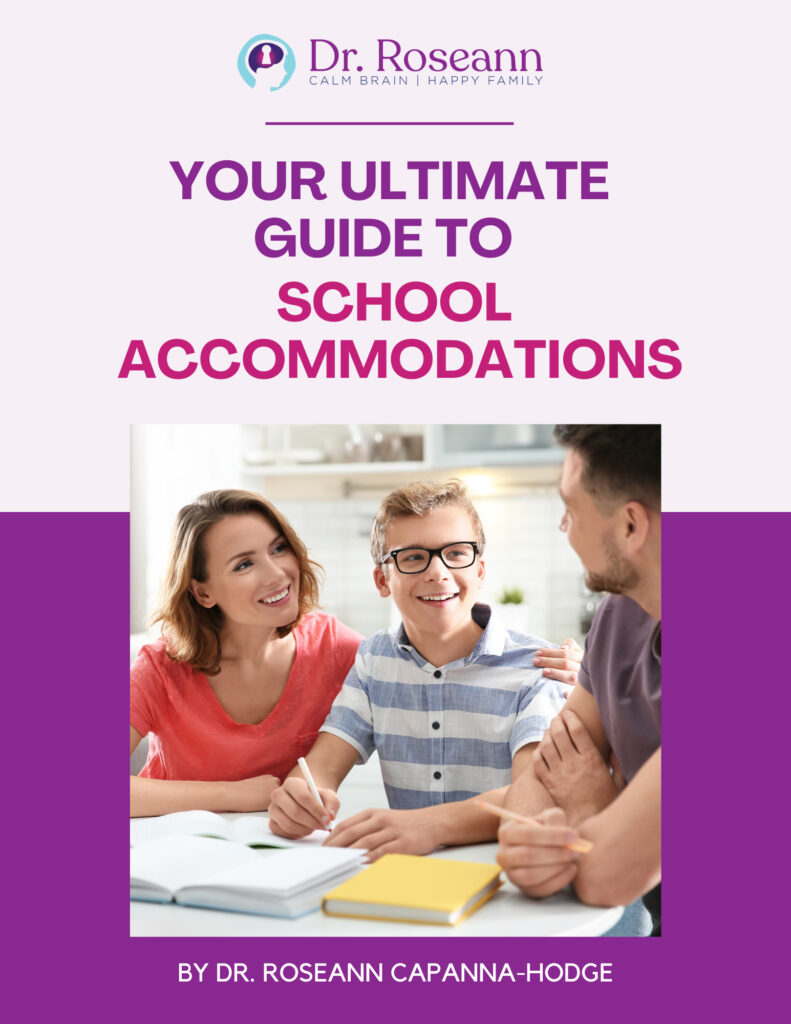Executive functioning skills are essential for academic success, but many students struggle with these skills. As a parent, it can be challenging to watch your child struggle with planning, organization, time management, and other executive functioning skills that are necessary for good grades. Fortunately, there are options available to help your child, including a 504 plan.
What are Executive Functioning Skills?
Executive functioning skills are a set of cognitive abilities that help us plan, organize, initiate, and complete tasks. These skills are critical for academic success and essential for everyday life. Executive functioning skills involve several cognitive processes, including:
- Working memory: the ability to hold and manipulate information in our minds to complete a task.
- Cognitive flexibility: the ability to adjust to new situations, switch between tasks, and see things from different perspectives.
- Inhibitory control: the ability to inhibit impulsive responses and sustain attention on a task.
- Self-monitoring: the ability to monitor one's own behavior and make adjustments to improve performance.
- Task initiation: the ability to start a task and independently generate ideas and strategies to complete it.
- Planning and organization: the ability to create a plan and organize resources to complete a task or achieve a goal.
- Time management: the ability to estimate time needed to complete tasks, prioritize tasks, and manage time effectively.
Without strong executive functioning skills, students may struggle in many aspects of learning and academics. As a result, these students may feel overwhelmed and frustrated with academic demands and experience challenges in their personal lives as well.
EF challenges can cause a lot of friction between child and parent because of what appears to look like low motivation or not caring. That just isn’t the case.
Executive functioning skills are different from attention. While they are intertwined, they are separate skills. In that same vein, ADHD and executive functioning dysfunction are different clinical issues as well.
When it comes to academic success, understanding the types of executive functioning skills involved is crucial for identifying where students may be struggling and finding the right accommodations to help them succeed.
Whether it's a parent or educator, providing targeted interventions and accommodations can make a big difference for students with executive functioning deficits, helping them improve their grades and overall quality of life. By working together and using strategies like breaking down assignments into smaller steps or using visual aids for organization, we can help these students reach their full potential and thrive in their academic pursuits.
Types of Executive Functioning Skills Required for Good Grades
There are foundational and advanced executive functioning skills that children and teens can learn to be better students (and in life too!). Having good executive functioning is possible when these skills are taught and reinforced.
There are several types of executive functioning skills required for good grades, including:
Planning and organizing assignments and projects
This involves breaking down assignments into smaller tasks and creating a plan for completing each task. This can support a student in the classroom and with homework assignments.
Prioritizing tasks and managing time effectively
Students must be able to prioritize tasks based on their importance and manage their time effectively to complete them.
Paying attention and staying focused during class
Students must be able to pay attention to the teacher and stay focused on the lesson to learn and retain information.
Remembering important information and instructions
Students must be able to remember instructions and important information to complete assignments and tests accurately.
How Do Executive Functioning Difficulties Qualify for a 504 Plan?
If your child has executive functioning difficulties that significantly impact their academic performance, they may qualify for a 504 plan. Section 504 of the Rehabilitation Act of 1973 prohibits discrimination against individuals with disabilities in programs that receive federal funding, including public schools. This law requires schools to provide equal access to education for students with disabilities, including those with executive functioning deficits.
To qualify for a 504 plan, a student must have a disability that substantially limits a major life activity, such as learning. In the case of executive functioning difficulties, a student's academic performance may be significantly impacted by their executive functioning deficit, and therefore, qualify them for a 504 plan.
Common Accommodations for Executive Functioning Difficulties
There are several executive functioning accommodations that schools may provide to students with EF difficulties through a 504 plan, such as:
- Breaking assignments into smaller, manageable tasks: This accommodation can help students with executive functioning difficulties to focus on one task at a time and reduce feelings of overwhelm.
- Providing extra time for assignments and tests: This accommodation can help students with executive functioning difficulties to work at their own pace and reduce stress during assessments.
- Using graphic organizers or other visual aids to help with organization: This accommodation can help students with executive functioning difficulties to visualize information and better understand how to organize their thoughts.
- Teaching students time management and planning skills: This accommodation can help students with executive functioning difficulties to develop strategies for managing their time and planning their tasks effectively.
Teaching Students Strategies for Improving Executive Functioning Skills
Parents can also help their children develop executive functioning skills by teaching them strategies for improving their skills very explicitly and with a high level of reinforcement. When teaching executive functioning skills, one must master foundational skills before moving to higher level skills such as writing.
Showing them the end result and working backwards: Kids with EF challenges simply don’t see the end result and therefore don’t know what they are working towards.
Creating step-by-step instructions for completing tasks: After showing them the end result (either an example or getting them to activate in their mind’s eye), break down tasks into smaller, more manageable steps.
Encouraging self-monitoring and reflection: This strategy can help students with executive functioning difficulties to reflect on their progress and identify areas for improvement.
Act it out: Kids with EF issues are often kinesthetic learners and acting out the steps to a task is more likely to be recalled.
Providing opportunities for practice and repetition: This strategy can help students with executive functioning difficulties to develop their skills through practice and repetition.
Teaching these strategies may be a short-term challenge but I recently worked with a college student who just about had given up being able to handle long-term assignments due to his executive functioning difficulties. Once Tyler learned to work from the end result backwards, he was able to not only manage his coursework but felt good about himself for the first time in his life.
Collaborating with Schools and Professionals
Working with schools and professionals can be instrumental in supporting your child with executive functioning difficulties. Open communication with teachers and school staff about your child's needs can help you advocate for the necessary accommodations. It is important to let them know what you see at home and also hear about what your teacher is seeing at school
While executive functioning skills are critical for academic success, many students struggle with these skills. However, with the right accommodations and support, your child with executive functioning difficulties can thrive in school.
Executive functioning skills can and should be taught at home and school. Teaching students strategies for improving their skills, such as breaking down assignments into smaller, manageable steps and using visual aids for organization, can also be beneficial. This is especially important with one of the most challenging EF tasks, writing.
Parents should not hesitate to speak with their child's teacher or school counselor about the possibility of a 504 plan. This legal document can provide specific accommodations and modifications to help your child access learning and succeed in school. With the right support, students with executive functioning deficits can reach their full potential and achieve academic success.
Download The Ultimate Guide to School Accommodations to Become Your Child’s Best Advocate
➡️ Get the ultimate accommodations guide that has all of “the meat and none of the potatoes” with accommodations for more than 30 common issues and conditions
➡️ The exact accommodations you need for any school meeting or letter from a seasoned school psychologist and IEP and 504 meeting veteran
➡️Come prepared with the accommodations requests that actually can help your child at school
Grab my Ultimate Guide to 504 Accommodations to get detailed 504 accommodations for the biggest issues impacting children and teens with executive functioning issues at school: attention, memory, anxiety, behavior, and more than 20 issues that impact learning, attention, and emotional functioning at school.
Improving Executive Functioning Skills At School and Home
Improving executive functioning skills is crucial for academic success and overall well-being. Executive functioning skills are the cognitive abilities that enable individuals to plan, organize, initiate, and complete tasks.
There are many ways to improve executive functioning skills both at school and home. In my FREE webinar, 5 ways to boost executive functioning and attention, I dive into simple ways to increase skills.
By practicing these strategies at school and home, parents can help their children develop strong executive functioning skills that will set them up for academic success and personal growth. There are many resources available besides medication, that can help improve attention and alertness.
Citations:
U.S. Department of Education. (2016). Parent and Educator Resource Guide to Section 504 in Public Elementary and Secondary Schools. Retrieved from https://www2.ed.gov/about/offices/list/ocr/docs/504-resource-guide-201612.pdf
Always remember… “Calm Brain, Happy Family™”
Are you looking for SOLUTIONS for your struggling child or teen?
Dr. Roseann and her team are all about solutions, so you are in the right place!
There are 3 ways to work with Dr. Roseann:
You can get her books for parents and professionals, including: It’s Gonna Be OK™: Proven Ways to Improve Your Child’s Mental Health, Teletherapy Toolkit™ and Brain Under Attack: A Resource For Parents and Caregivers of Children With PANS, PANDAS, and Autoimmune Encephalopathy.
If you are a business or organization that needs proactive guidance to support employee mental health or an organization looking for a brand representative, check out Dr. Roseann’s media page and professional speaking page to see how we can work together.
Dr. Roseann is a Children’s Mental Health Expert and Therapist who has been featured in/on hundreds of media outlets including, CBS, NBC, FOX News, PIX11 NYC, The New York Times, The Washington Post,, Business Insider, USA Today, CNET, Marth Stewart, and PARENTS. FORBES called her, “A thought leader in children’s mental health.”

She is the founder and director of The Global Institute of Children’s Mental Health and Dr. Roseann Capanna-Hodge. Dr. Roseann is a Board Certified Neurofeedback (BCN) Practitioner, a Board Member of the Northeast Region Biofeedback Society (NRBS), Certified Integrative Medicine Mental Health Provider (CMHIMP) and an Amen Clinic Certified Brain Health Coach. She is also a member of The International Lyme Disease and Associated Disease Society (ILADS), The American Psychological Association (APA), Anxiety and Depression Association of America (ADAA) National Association of School Psychologists (NASP), International OCD Foundation (IOCDF) International Society for Neurofeedback and Research (ISNR) and The Association of Applied Psychophysiology and Biofeedback (AAPB).
© Roseann-Capanna-Hodge, LLC 2023
Disclaimer: This article is not intended to give health advice and it is recommended to consult with a physician before beginning any new wellness regime. *The effectiveness of diagnosis and treatment vary by patient and condition. Dr. Roseann Capanna-Hodge, LLC does not guarantee certain results.
















